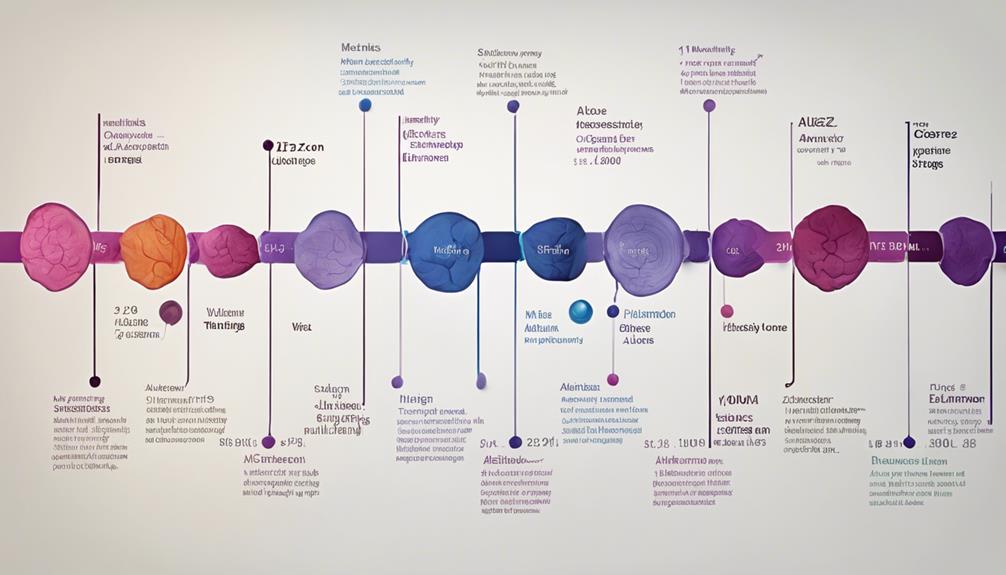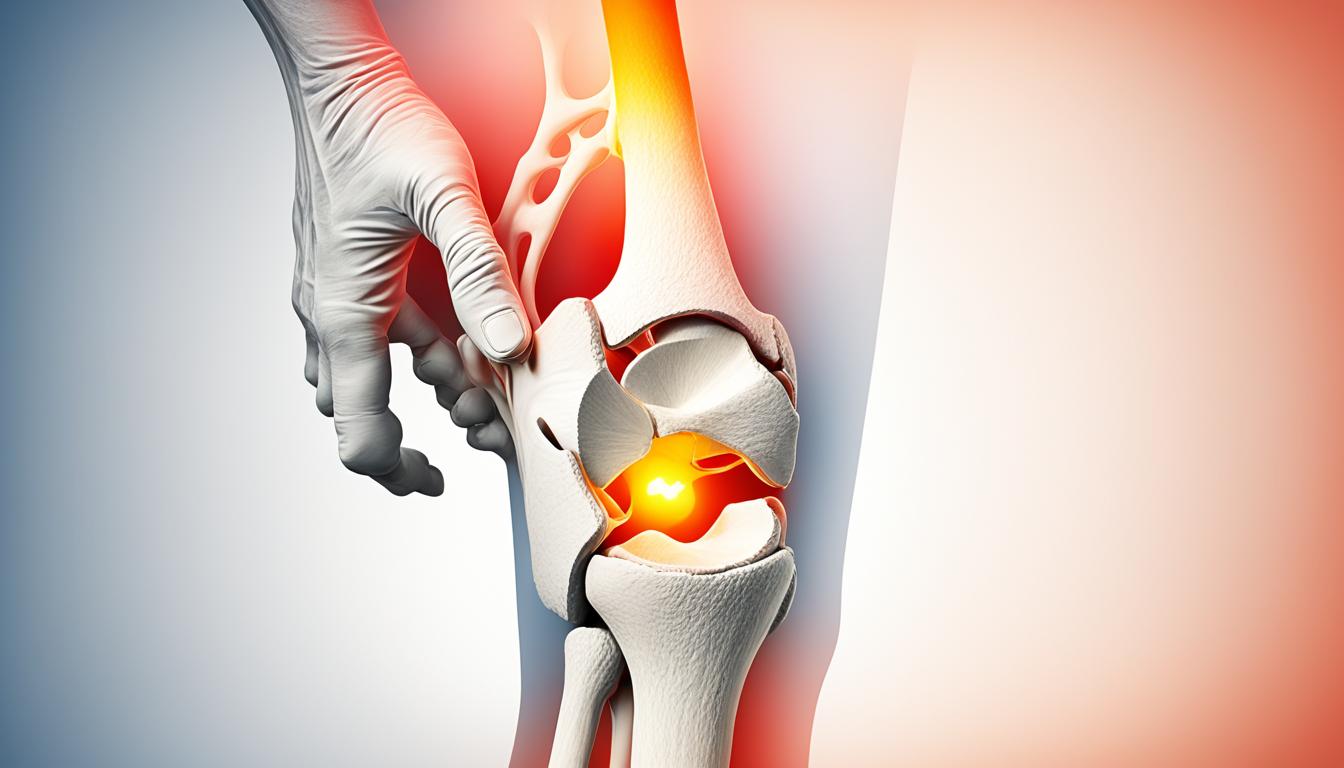Dealing with aggression in the initial phases of Alzheimer’s disease often demands us to adeptly navigate unfamiliar territory with strength and perseverance.
As we face the complexities of this journey, it becomes essential to understand the nuances of behavior and the impact of environment on those experiencing Alzheimer's.
Our guide sheds light on practical strategies that can make a significant difference in the lives of both caregivers and individuals affected by the disease.
Stay tuned to discover the keys to unlocking a calmer, more supportive approach in handling aggression in early Alzheimer's stages.
Key Takeaways
- Recognize triggers like confusion and discomfort for managing aggression effectively.
- Use clear and calm communication strategies to de-escalate tense situations.
- Create a supportive home environment with familiar settings and minimal distractions.
- Establish a structured daily routine with visual cues for stability and predictability.
Understanding Aggression Triggers and Causes
Understanding the triggers and causes of aggression in early Alzheimer's stages is essential for effectively managing challenging behaviors with compassion and empathy. As a person progresses through this stage, they may experience agitation due to various factors such as confusion, frustration, or fear.
Changes in routine, unfamiliar environments, or loud noises can also provoke aggressive behaviors in individuals with early Alzheimer's. Additionally, physical discomfort like pain or hunger can contribute to aggression. It's important to recognize that agitation may arise from fatigue, lack of rest, or overwhelming stimuli in the environment.
Effective Communication Strategies for De-escalation

When communicating with individuals in early Alzheimer's stages to de-escalate potential aggression, it's important to use simple and clear language while maintaining a calm and patient tone. Effective communication strategies play a crucial role in diffusing tense situations. Here are some key tactics to employ:
- Use simple and clear language: Keep your sentences short and straightforward to avoid confusion.
- Maintain a calm and patient tone: Speaking in a gentle and reassuring manner can help soothe the individual and prevent further escalation.
- Utilize non-verbal communication: Sometimes, actions speak louder than words. Gentle touch, maintaining eye contact, and using comforting gestures can convey understanding and support.
Creating a Supportive Environment at Home
To create a supportive environment at home for individuals in early Alzheimer's stages, it is essential to ensure the living space is familiar, organized, and conducive to reducing confusion and disorientation. Using calming colors and lighting can help create a soothing atmosphere, while minimizing noise and distractions can aid in maintaining focus and comfort. Incorporating familiar objects and personal belongings promotes a sense of security and familiarity, which is particularly important for those with Alzheimer's or dementia. By implementing these strategies, caregivers can enhance the quality of life for their loved ones and create a space where they feel safe and understood.
| Creating a Supportive Environment at Home |
|---|
| Key Points |
| Ensure familiar and organized living space |
| Use calming colors and lighting |
| Minimize noise and distractions |
| Provide familiar objects and belongings |
| Promote security and familiarity |
Creating a supportive environment is crucial in managing aggression and improving the overall well-being of individuals in the early stages of Alzheimer's disease.
Implementing Daily Routine and Structure

Establishing a consistent daily routine can significantly benefit individuals in the early stages of Alzheimer's by reducing confusion and promoting a sense of security and familiarity. In this stage, individuals may find comfort and stability in a structured environment.
Here are some ways to implement daily routine and structure:
- Establishing a Consistent Routine: Setting regular times for meals, exercise, and leisure activities can create predictability and comfort.
- Incorporating Structured Activities: Engaging in activities with clear beginnings and endings can help maintain a sense of purpose and accomplishment.
- Utilizing Visual Cues: Using tools like calendars, clocks, or task lists can assist in reminding and guiding individuals through their daily tasks.
Seeking Professional Help and Resources
Navigating the challenges of managing aggression in the early stages of Alzheimer's can be overwhelming, but seeking professional help and utilizing available resources can provide valuable support and guidance. It's crucial to consult a healthcare provider for a thorough assessment of the aggression exhibited in early Alzheimer's stages. A dementia specialist or geriatric psychiatrist can offer tailored treatment strategies to address the specific needs of individuals experiencing aggression. Additionally, exploring support groups or counseling services that specialize in managing aggression in Alzheimer's patients can provide practical advice and emotional support for both caregivers and individuals with Alzheimer's.
Accessing resources such as the Alzheimer's Association or local community services can offer additional assistance and connect you with valuable support networks. Considering participation in caregiver training programs is also beneficial as it equips you with effective techniques for handling aggression in early Alzheimer's stages. Remember, you aren't alone in this journey, and seeking professional help is a proactive step towards better managing aggression and promoting overall well-being.
Frequently Asked Questions
How Do You Deal With Alzheimer's Aggression?
Dealing with Alzheimer's aggression requires patience and understanding. We tackle it by remaining calm, offering reassurance, and avoiding confrontations. Techniques like distraction, redirection, and engaging in calming activities are effective.
Seeking medical advice to identify potential triggers is crucial. Removing triggers, ensuring comfort, and establishing routines create a safe environment.
Educating ourselves on Alzheimer's aggression helps us respond better to challenging behaviors in the early stages.
Where Do You Put Dementia Patients With Aggressive Behavior?
When dealing with dementia patients exhibiting aggressive behavior, it's crucial to consider specialized care options.
Facilities with designated memory care or behavioral units equipped to handle aggression in dementia patients are beneficial. These units often have staff trained in managing such behaviors.
Home care with experienced caregivers is another viable option. Ultimately, choosing a facility or care provider with expertise in handling aggression in early Alzheimer's stages is essential for the patient's well-being.
What Is the First Line Treatment for Aggression in Dementia?
When dealing with aggression in dementia, our go-to approach involves non-pharmacological methods like creating a soothing atmosphere and offering comfort.
By pinpointing triggers and incorporating calming activities, we tackle aggression head-on in early Alzheimer's stages. Safety for both the individual and the caregiver is paramount.
Early detection and ongoing observation can curb aggression escalation. Relying on healthcare pros and support groups equips us with effective strategies and support for managing early Alzheimer's aggression.
What Stage of Dementia Is Anger and Aggression?
In the early stages of dementia, including Alzheimer's disease, anger and aggression can still be present. These behaviors may stem from confusion, frustration, or discomfort experienced by individuals.
Understanding the progression of the disease can help us anticipate and manage these behaviors effectively. By intervening early and employing appropriate strategies, we can work towards mitigating anger and aggression in those with early-stage Alzheimer's, fostering a more supportive environment.
Conclusion
In conclusion, managing aggression in the early stages of Alzheimer's requires patience, understanding, and a supportive environment.
While it may be challenging at times, staying calm and using effective communication strategies can make a significant difference.
Remember, seeking professional help and resources isn't a sign of weakness, but a proactive step towards providing the best care possible for your loved one.
Together, we can navigate through this journey with compassion and strength.









